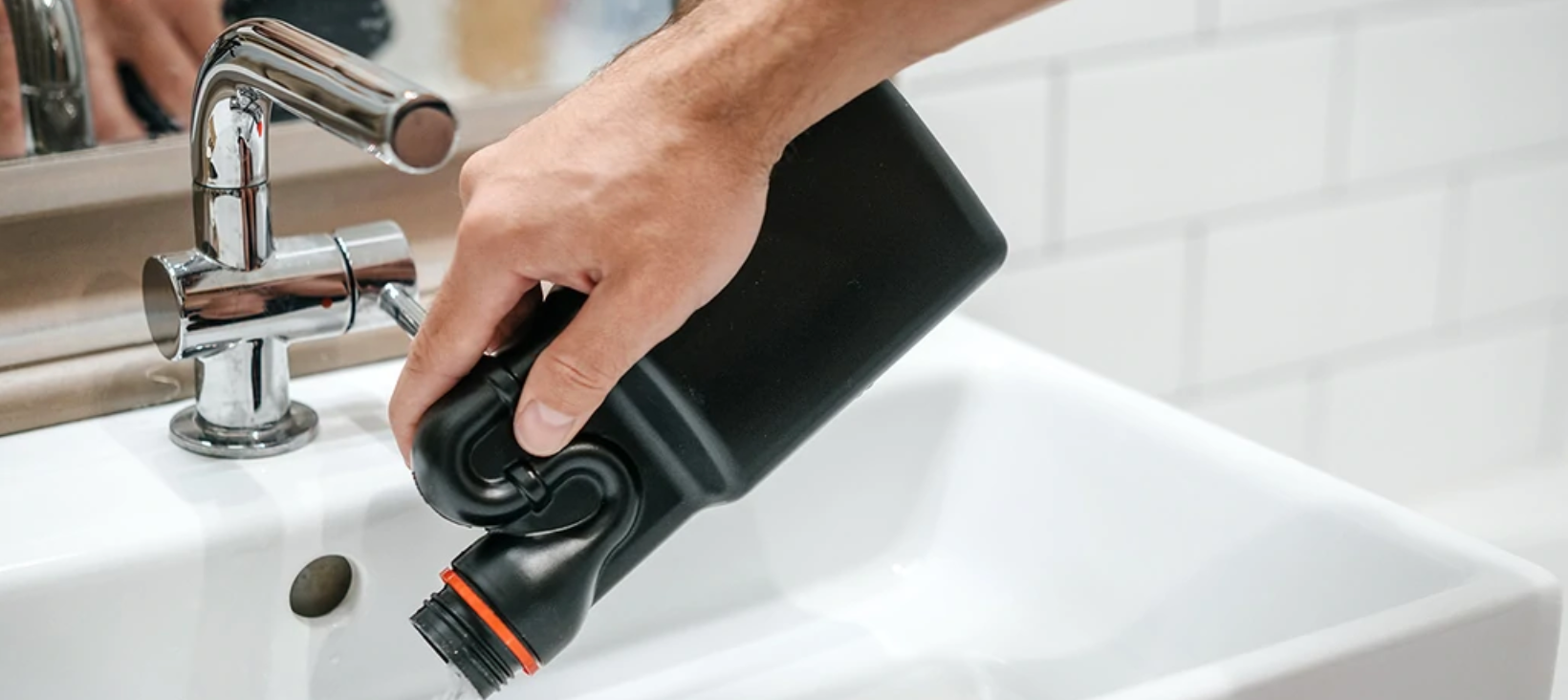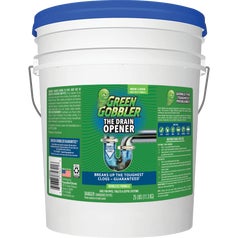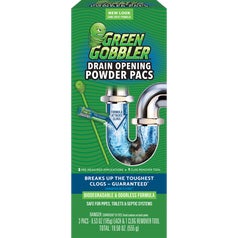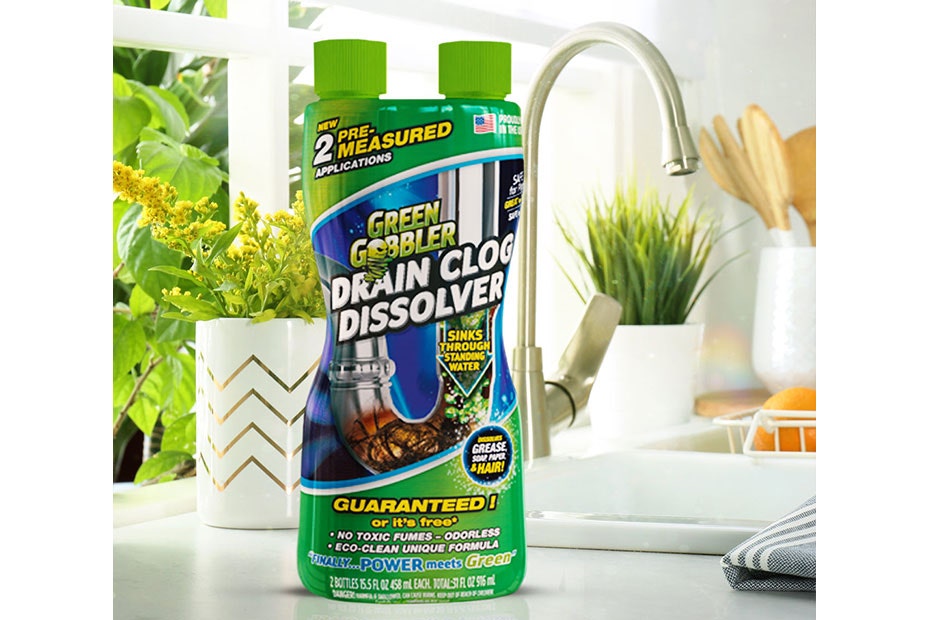

When the time comes and you need to clear a drain clog, you’ve got a few options. You could try a homemade remedy, or you could go the common route and grab a drain cleaner from a department store.
Most store-bought products are made with strong chemicals to break down hair and oils. However, chemical-based drain cleaners have some competition as of late: enzyme-based cleaners. These drain cleaners use bacteria and powerful enzymes to break down hair and organic matter.
So, how do you choose between a chemical-based drain cleaner or an enzyme-based one? Should you go the traditional route or take a risk? Let’s "break down" the argument.
Chemical cleaners work, but at a price
Chemical-based drain cleaners typically come in liquid form, but they are also available as gels and powders. Chemical drain cleaners rely on chemical reactions in order to clear clogs. There are three general types of chemical drain cleaners:
- Caustic drain cleaners contain either lye or potash, two powerful alkaline chemicals. Caustic drain cleaners produce heat to break down food and grease clogs, turning them into a soap-like substance that dissolves more easily.
- Oxidizing drain cleaners contain bleach, peroxide and nitrates. As the name suggests, they oxidize clogs to produce heat and gas, which breaks up the organic matter in the drain.
- Acid drain cleaners contain highly concentrated levels of sulfuric acid or hydrochloric acid. These products are typically not available to homeowners; they must be purchased locally by plumbers. Acid drain cleaners also create heat by means of chemical reaction in order to break down clogs. While acid drain cleaners are more effective than caustic or oxidizing drain cleaners, they also carry greater risks if used improperly.
Despite being generally effective at removing clogs, chemical-based cleaners come with risks. Because these chemicals rely on the heat produced by chemical reactions, they can actually soften PVC pipes, especially if the pipes are more than 20 years old (or if the cleaner isn’t used as directed).
They also damage older metal pipes made from brass, aluminum, chrome, stainless steel, or galvanized steel. Chemical drain cleaners can also damage your kitchen, as they can etch natural stone countertops and tarnish metal drain openings and faucets.
The caustic nature of these chemicals can also affect your septic tank, killing off the good bacteria necessary for a healthy septic system.
Chemical drain cleaners are also damaging to people. The chemicals and their fumes can irritate or burn eyes, skin, and mucous membranes. Chemical drain openers can also eat holes in clothing if accidentally splashed or spilled.
If you mix a chemical drain cleaner with bleach or ammonia, the chemical reaction can create a toxic gas, which is especially dangerous for those with asthma or heart conditions.
All of these dangers make wearing protective clothing very important when using these cleaners.
Enzyme drain cleaners are generally the better option
In recent years, new drain cleaning methods have become available in the form of enzyme-based drain cleaners. These products use bacteria that produce enzymes in the presence of organic matter, such as food particles, hair, mildew, mold and algae. The enzymes break down the material into tiny pieces that can then be flushed through your pipes with water.
Because enzyme drain cleaners are free of chemicals, they pose no risk to your pipes, surfaces or septic system. In fact, these handy enzymes actually help boost your septic tank’s natural bacteria population. While there’s a possibility for skin irritation, enzyme drain cleaners will not cause burns or mucous membrane irritation like chemical drain cleaners.
One of the most highly recommended enzyme-based cleaners is Green Gobbler’s Enzyme Drain Cleaner, which uses a a biodegradable formula. Safe to use in sinks, tubs, showers and toilets, Green Gobbler can clear common culprits of drain clogs, including hair, soap scum and other organic material. So stop fussing with chemical drain cleaners and give an enzyme drain cleaner a try.
























